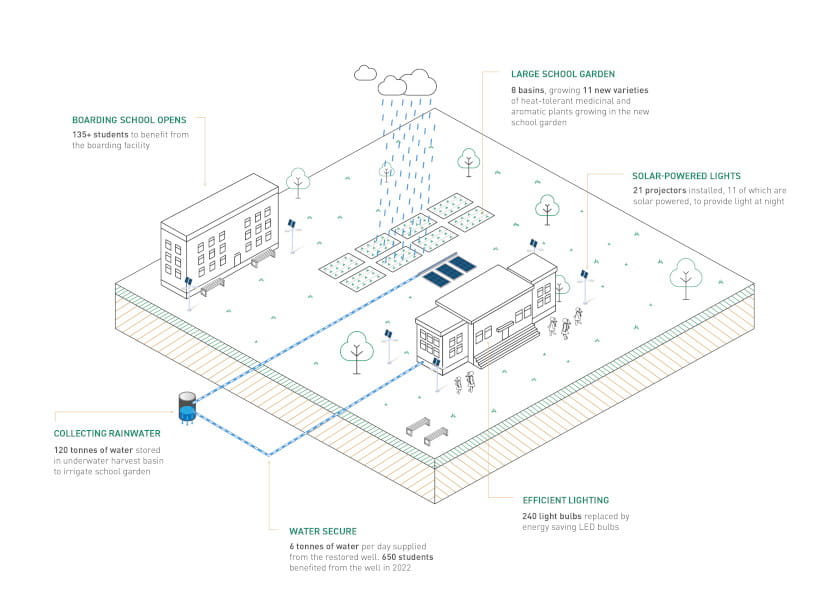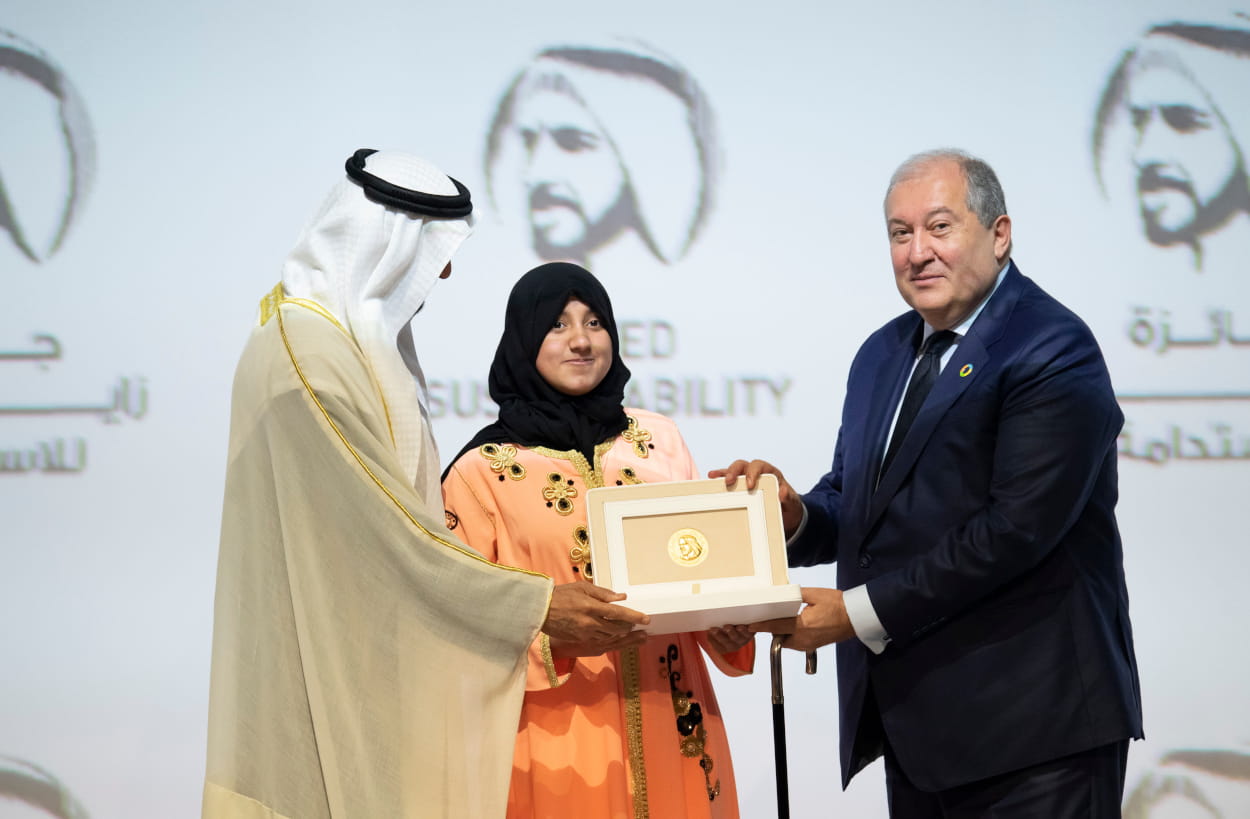This International Youth Day, Aug 12, we celebrate the team of students who won the 2020 Zayed Sustainability Prize and turned Al Amal Junior High School from Water Scarce to Water Rich
The Zayed Sustainability Prize – the UAE’s global award for recognising excellence in sustainability – helped motivate students at Al Amal Junior High School in Morocco to develop a reliable source of clean drinking water and self-sustaining irrigation system for their educational school garden.
“We used to drink from a well connected to the school, but shared it with the local community, so the school suffered shortages, especially in summer. Sometimes we would go a whole day without finding water to drink,” said Ilham Qouissem, one of the students at Al Amal who participated in submitting the proposal that won the Global High Schools 2020 Zayed Sustainability Prize in the Middle East and North Africa (MENA) region.
Al Amal Junior High School, a rural boarding school located in the small town of Sidi Boubker, in Rehamna province of Morocco, is one of the few regional schools with an academic focus on agriculture. The school’s garden is a living laboratory used for academic enrichment, offering the chance to grow plants, make observations and conduct experiments.
However, the water shortages negatively impacted the garden. During summer, plants died due to lack of water, leaving an empty plot of land and depriving students of learning opportunities.
No water, no boarding
Khadija Tanan, a Grade 11 student at Al Amal, said: “The most important lesson we learned through this experience is the idea of preservation. Water is scarce in our region, so we must preserve and not waste the water we use in our daily lives.”
But more importantly than the plants, the students themselves often faced long, hot days without access to fresh drinking water at the school – affecting their health and ability to focus and learn. The water shortage meant the school’s boarding facilities had to remain closed, forcing over 100 students who lived up to 28km away to make a long, arduous commute each day.
Lifelong lesson
“Before we had the second well, summer days could be long and tough. It made me less excited to come to school. Now we have enough water – and the fantastic gardens to enjoy, it’s made everything wonderful. I’m proud to have been involved in this project – where we learnt about traditional irrigation and very modern, sustainable energy – which will stay with me for life,” said Qouissem.
After learning about the Zayed Sustainability Prize, the students and faculty started thinking of innovative solutions to solve the water scarcity. They drew upon modern science and technology while utilising local wisdom and water harvesting practices to overcome the issue.
This proposal to generate water through clean energy and sustainably revive the school’s garden won them the 2020 Zayed Sustainability Prize. Their innovative water supply and conservation plan was successfully implemented in May 2021.

How the project worked
The project restored an existing – but defunct - well located near the school to provide drinking water. they installed solar panels to supply the energy needed to pump water from the well to the school.
“The well now provides more than 6 tonnes of water a day. it supports the existing one [shared with the community], so we should never suffer from water shortages again,” said abderrahim monsir, a science teacher at the school.
This year, 650 students have enjoyed water from the restored well. now, thanks to a reliable water supply, the school expects to welcome 750 students next year.
The new well has also enabled al amal to open its boarding facility, which remained unused since opening in 2016 due to the lack of water. now, it hosts 90 students, with plans to welcome 135 next year.
“We learned the difference between wells dug traditionally by hand and new ones dug by machines. we discovered the value of underground water and the importance of preserving it,” tanan shared.
Harvesting hope
The school has built an underground water harvest basin (matfia) to store rainwater. in sidi boubker, the school’s location, rain is scarce, yet stormwater often goes to waste.
The school now has a second, bigger garden, featuring 11 types of medicinal and aromatic plants, sowed by the students, that can sustain the heat. the old and new gardens are watered from the underground basin using drip irrigation and an automatic irrigation monitor.
Building the basin also provided the students with a first-hand learning experience.
“We learned how an old practice – still widely used in rehamna - can also be used at our school, but in a modern way. we learned about the dimensions of the underground basin, materials used to build it, the kinds of pumps used to pump water, and how it relates to solar energy,” said qouissem.
The school has managed to store more than 120 tonnes of water from the harvest basin so far.
“The zayed sustainability prize has opened wonderful prospects for our school. not only did it enable us to implement our projects, overcome difficulties and provide an excellent learning opportunity for our students, but it also enabled us to apply for several projects in morocco, and we managed to receive funding to build a water tower,” said monsir.
.svg?iar=0&hash=670E3638BC16C0DD69B262DD1184DEA8)

